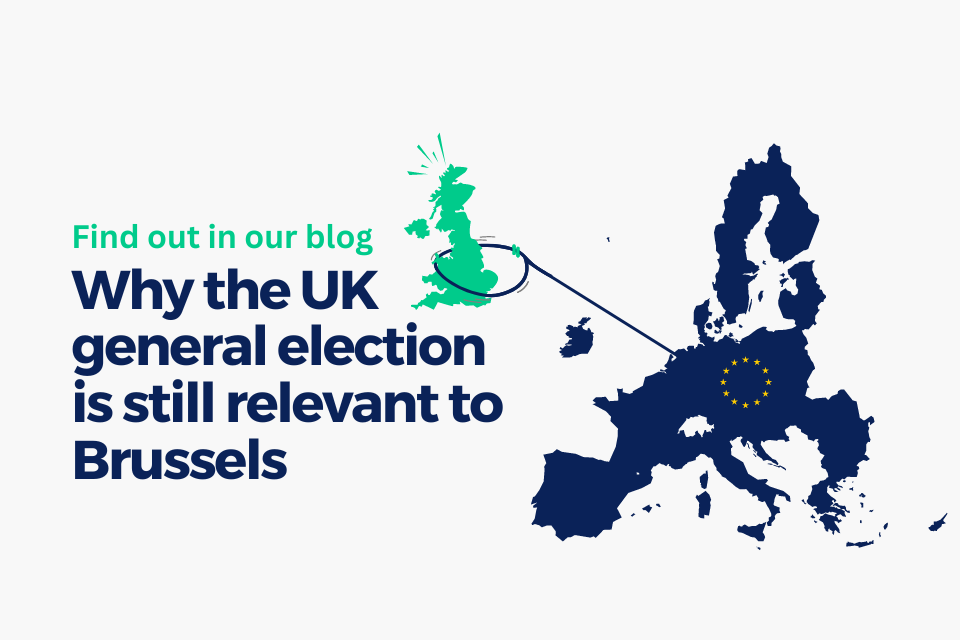The EU’s Big Two must reboot their role as a dynamic duo if Europe is to enjoy a sustainable future.
Written by David Gow, Senior Advisor
“No more business as usual” is a common refrain among EU politicians and officials in the run-up to next year’s elections to choose a new European Parliament and, concurrently, a new College of Commissioners headed, quite possibly, by a new Commission President. The talk is of “make or break” votes, a “watershed” in EU history.
“Europe has to reinvent itself,” says Fabian Zuleeg, Chief Executive of the European Policy Centre, on the need for modernisation and competitiveness married to sustainability and security. The problem is that there are any number of blueprints for doing this – with three Italian ex-premiers/technocrats alone (Mario Draghi, Enrico Letta and Mario Monti) coming up with their suggestions. The Commission churns out one a month by all appearances. (See 2023 Strategic Foresight Report and EU competitiveness beyond 2030 and An EU approach to enhance economic security * and Factsheet: The Green Deal Industrial Plan…)
Draghi, ex-European Central Bank President credited with saving the Euro a decade ago, is ruthlessly honest about the prospects: “Either Europe acts together and becomes
a deeper union, a union capable of expressing a foreign policy and a defence policy, aside from all the economic policies . . . or I am afraid the European Union will not survive other than being a single market.”
It’s already clear he believes the EU must significantly raise its game and is sceptical of the claim made by the Commission President in her latest State of the Union speech, that we have already witnessed “the birth of a geopolitical Union.” It’s easy to understand why. Muddling through, the classic EU response to crises is an increasingly unviable option when you’re dealing with “permapolycrises” (Zuleeg).
Are the EU-27 at least united on sustainability?
The EU’s agenda does not lack ambition: “The EU is engaged in a profound and ambitious transition to achieve climate neutrality and sustainability in the next decades. A successful transformation will limit the existential risks of climate change and the environmental crisis. It will also be key to strengthening the EU’s open strategic autonomy, long-term competitiveness, its social economy model and EU global leadership in the new, net-zero economy.”
Effectively, the aim is to bestride a tripolar world with the US and China rather than be subservient to bipolar Sino-American rivalry. And to recreate Europe as an exemplary model for the rest of the world – “answering the call of history once more” as von der Leyen put it. But the current EU-27 is not united around that agenda, to say the least. And the pair of countries that have driven EU progress for half a century, France and Germany, are at loggerheads on what needs to be done.
Can Open Strategic Autonomy (OSA) stop the EU from falling behind?
The S&D group in the European Parliament describes Open Strategic Autonomy (OSA) as “a necessary response” to that great power rivalry but there’s the rub: it is a highly defensive reaction to a world that has already moved on, with the current two great powers reshaping it to suit their interests. The EU itself admits that it is being left behind, with weaker productivity growth, R&D investments, and technological innovation.
And the risk seen by many commentators is that the great achievement of the EU, its single market built on free trade and competition, will be in jeopardy in the rush to outgun the US and China in protectionist industrial and trade policies designed to “‘put sustainability and people’s wellbeing'” at the heart of an OSA-driven Europe. What’s more, despite the achievements associated with #NextGenerationEU and Recovery & Resilience Plans, Europe lacks the collective financial firepower to make good the mission set by von der Leyen: “Let’s make sure that the future of our industry is made in Europe.”
When comparing the EU’s green plan to President Biden’s Inflation Reduction Act (IRA), or Chinese equivalent, they seem at first sight to be a lot more impressive than the EU plans. However, on further investigation, the $1.2trn supposedly set to be unleashed by the IRA equates to just $400bn invested directly in climate and environmental projects. Indeed, fully accounted for, the EU and Member States have more funding for climate and environment than the brash IRA.
The IRA has nevertheless made a bigger splash, grabbing all our attention, partly because funding is much simpler and easier to access compared to the EU’s alternative (which consists of a multitude of national, regional and EU-based schemes). The Jacques Delors Centre in Berlin points out that, by using reliable tax breaks, Biden’s IRA is a huge magnet for investments in, say, green hydrogen. A recent paper adds that a solar panel plant 3Sun gets €188m in EU funds but, under the IRA, could get as much as $1.26bn in subsidies if it were in the US.
The IRA has indeed inspired more business and investor confidence vs the EU approach, especially when EU Member states consider measures such as linking local content requirements to OpEx subsidies (resilience bonus), as they are looking to do in Germany. Coupled with the fact that the European Parliament is pushing to restrain the resilience criterion under the Net Zero Industry Act.
The troubled twins
In an unstable world, marked by two wars on Europe’s borders, the prosperity that glued the EU’s disparate members together is no longer guaranteed. And the eventual solidarity that brought the successful defence against Covid and, then, the shared financial investment against economic collapse is fraying badly. Sauve qui peut is a more common response today.
This resort to national solutions and, in some cases like Hungary or Poland, demonising the EU to boot, is highlighted by the growing number of spats between Berlin and Paris. The conflict goes well beyond poor personal chemistry between Olaf Scholz and Emmanuel Macron or even the much-publicised feud over nuclear power that held up reforming the design of the EU electricity market for months until an unconvincing compromise reached in Hamburg last month between the two leaders prompted a deal in the Council. Nuclear has also been a sticking point in the Renewable Energy Directive, with France wanting hydrogen produced by nuclear power to count as a ‘renewable fuel of non-biological origin’. What’s more, the Big Two’s row on what constitutes sustainable finance in the EU Taxonomy ended in both nuclear and gas being included equally as ‘transitional’ investments to keep Germany and France happy in a decision consigned by the WWF to its “hall of shame” of deleterious measures for the environment.
The two disagree over a top-up to the current EU Budget (MFF) and, more fundamentally, reform of the Stability & Growth Pact which has been suspended in the pandemic, but due to return to normal working in January. German Finance Minister, Christian Lindner, who leads the small and declining FDP within Scholz’s unwieldy and shaky coalition, wants strictly timed steps towards cuts in government debt via strict curbs on spending; France does not share the obsession with balanced (schwarze Null) budgets. There is fierce disagreement too over whether investment spending should be treated as a “golden rule“.
On the international stage beyond Europe France and Germany are supposedly sharing work on producing new generation tanks, but delays are the new normal. They disagree over how to treat heavily subsidised Chinese EVs and, more basically, China’s great power status. Differences are starting to show over Israel’s war on Hamas in Gaza, with Macron urging a ceasefire and Scholz arguing against it.
All of this colours how Europe is approaching its existential quest for a sustainable, stable and secure economy. If the Big Two cannot agree on a common pathway, the prospects for the EU doing so are bleak, especially on the possible brink of a historic enlargement that will bring in even more disparate members and likely instability. Tribalism driven by national interest is, they both know, a recipe for disaster.


